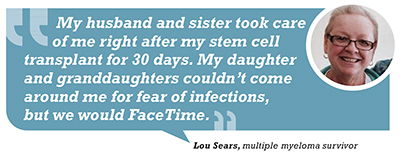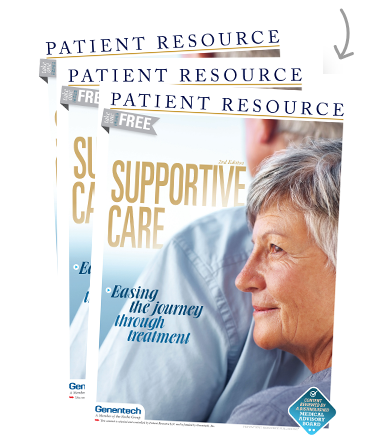Neutropenia
Neutropenia is a condition in which you have a low number of neutrophils, one type of white blood cell. Neutrophils play an important role in preventing infection throughout the body, so having an abnormally low number of them increases your risk of infection. The lower the neutrophil count, the greater the risk for infection. Neutropenia also makes it more difficult for an infection to resolve if bacteria enter the body. It is important to note, however, that most people who are treated for cancer with some types of radiation therapy and chemotherapy have neutropenia but do not get an infection.
What causes neutropenia?
White blood cells divide and grow rapidly, making them vulnerable to damage from cancer treatments. Treatments that typically affect neutrophils include chemotherapy, radiation therapy, bone marrow/ stem cell transplantation, immunotherapy and steroids.
Many factors contribute to the development of neutropenia, including the dose and type of the therapy and the overall health of an individual. Combination therapies tend to further increase the risk.
When does neutropenia typically occur?
The neutrophil count usually starts to drop about 7 days after a treatment begins and reaches the lowest point between 7 and 14 days after treatment. This may vary based on the type of treatment, dose and schedule.
During treatment, your health care provider will order blood tests frequently to check your absolute neutrophil count (ANC). It must be at a certain level for it to be safe to have your next scheduled treatment. Generally, the count rises again on its own. Sometimes, however, it does not.
If the neutrophil count is extremely low and you hear that you are “neutropenic,” your health care provider may delay your next treatment until the count has increased. For the time that the count is low, you will be instructed to follow neutropenic precautions to prevent infection. These precautions include:
- Taking your temperature 4 times each day, or as advised by your health care provider.
- Not eating uncooked foods.
- Staying away from fresh flowers, plants and gardening.
- Avoiding enemas, rectal suppositories and rectal thermometers.
- Postponing dental work.
In addition, your health care provider may prescribe growth factors. They are special proteins that can stimulate the bone marrow to produce more white blood cells and are usually given as an injection under the skin (subcutaneously). Preventive antibiotics may be another option.
How you can manage neutropenia
Although neutropenia is an expected side effect and cannot be prevented, you can take steps to reduce your risk of infection.
Along with staying current with your vaccinations, do the following:
Practice excellent personal hygiene:
- Wash your hands frequently.
- Do not cut or pick at cuticles (use a cuticle cream).
- Brush teeth after each meal and at bedtime. Use alcohol-free, antiseptic mouthwash daily.
- Use a deodorant rather than an anti-perspirant.
- Use a water-soluble lubricant during sexual intercourse, and perform good hygiene immediately following intercourse.
Avoid situations that could increase the risk of infection, such as the following:
- People with colds or other infections, such as COVID-19, influenza and RSV, and people who live with others who have these and other infections.
- Young children who may appear healthy but could be harboring colds, flu, chicken- pox or other contagious ailments.
- Anyone, including infants and young children, who were vaccinated recently.
- Crowds and public transportation as much as possible (when necessary, go out at off-peak times and wear a medical-grade mask). Ask a caregiver or friend to do the errands that you absolutely do not have to do yourself.
- Disposal of animal waste (including cat litter and fish tank water).
Use extra precaution to reduce injuries:
- Always wear shoes.
- Protect your hands (wear gloves when doing dishes or gardening).
- Prevent constipation.
- Wear sunscreen with a sun protection factor (SPF) of at least 15.
- Use an electric razor rather than a blade razor to shave.

When to call your health care provider
Before treatment begins, talk to a member of your health care team about the possibility of neutropenia with the therapies in your treatment plan. If you are at risk, ask for specific symptoms to watch for and any other precautions to take.
Infections during cancer treatment can become serious very quickly. Immediately call your health care provider if you have any signs of infection, which include:
- Fever (oral temperature over 100.4 °F, or as advised by your health care provider), chills and sweating.
- Flu-like symptoms (body aches, general fatigue) with or without fever.
- Cough, shortness of breath, painful breathing.
- Sore throat or sores in your mouth.
- Redness, pain or swelling on any area of your skin
- Pus or drainage from an open cut or sore
- Diarrhea (loose or liquid stools)
- Pain or burning with urination.
- Vaginal drainage or itching.



